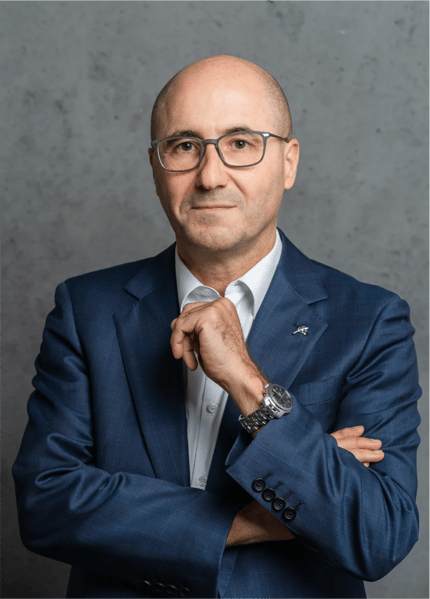
Central bankers have declared war on inflation
The chair of the US Federal Reserve (Fed) has adopted a more hawkish tone since the Jackson Hole symposium in late August. And the Fed has put Chairman Powell’s words into action by conti- nuing to raise rates, implementing the third 75- basis-point increase in a row. Mr Powell has made it clear that his aim is to put the brakes on economic growth in order to ease the pressure on the country’s overheating labour market and prevent a wage-price spiral. The US economy is
indeed cooling, but we still think it will make a soft landing, especially gi- ven that oil prices have dropped sharply since early summer. The decline in fuel prices comes as a huge relief for American households, who saw their cost of living soar after the war broke out in Ukraine. The drop in oil prices has had a knock-on effect on consumer-price growth, with some indicators suggesting that inflation has now passed its peak in the US. This could mean that the Fed will take a break from its tightening in the first quarter of 2023.
The economic slowdown is affecting countries worldwide. In China, GDP growth is expected to drop to around 3% this year. Not counting 2020, when the economy was hit hard by the COVID-19 pandemic, that’s China’s slowest pace of growth in 30 years. However, Beijing has brou- ght in measures to shore up its construction sector and has eased up on its zero-COVID approach, which should mean that the world’s second- largest economy will bounce back next year. The 2023 outlook for the eurozone economy is much bleaker, however, as the region will find it hard to avoid a recession. But eurozone countries have been building up their natural gas reserves, so the contraction should be moderate, un- less the coming winter is much harsher than it has been in recent years. The Swiss economy is expected to once again hold up comparatively well during this tough period for Europe.
The current round of monetary policy tightening has rocked fixed income markets. While we expect bond yields to keep rising in Europe, we think US yields are now back at very attractive levels. We have therefore in- creased our allocation to US-dollar-denominated bonds in our investment grids and reduced our exposure to commodities, which have performed relatively well this year. Stock markets have also been rattled by the more hawkish tone adopted by central bankers since the late summer. Stock prices have slumped, and investors are at their most bearish since the 2008 financial crisis, so we would advise against selling off positions at today’s levels. The current round of monetary policy tightening is likely to end in early 2023 – at least as far as the Fed is concerned – so we’re likely to see a much more favourable market environment next year, or even be- fore that. Investors could soon begin pricing in this change in course, which is likely to boost the US market first. We are therefore increasing our exposure to US equities in our portfolios and reducing our allocation to Japanese equities, which have held up well this year.
Find the full analysis of the economic and market situation in our investment strategy as well as an update from our CIO, Daniel Varela, in this short video (in french) :
You can also watch the replay of our webinar on 04 October about our investment strategy for Q4 2022. Please note that this webinar is in French. We are working on the English version, which will be available soon.
Access to the replay of the webinar
Do you appreciate our investment strategy and would you like to know more about our services? Contact us for a no-obligation consultation.
Author
-

Daniel Varela holds a degree in business administration with a specialisation in finance from the University of Geneva and began his career in 1989 as a fixed income manager. He joined Banque Piguet & Cie in 1999 as head of institutional asset management and with responsibility for bond analysis and management. In 2011, he became head of the investment strategy and Piguet Galland's investment department. In 2012, he joined Piguet Galland's Executive Committee as CIO.





